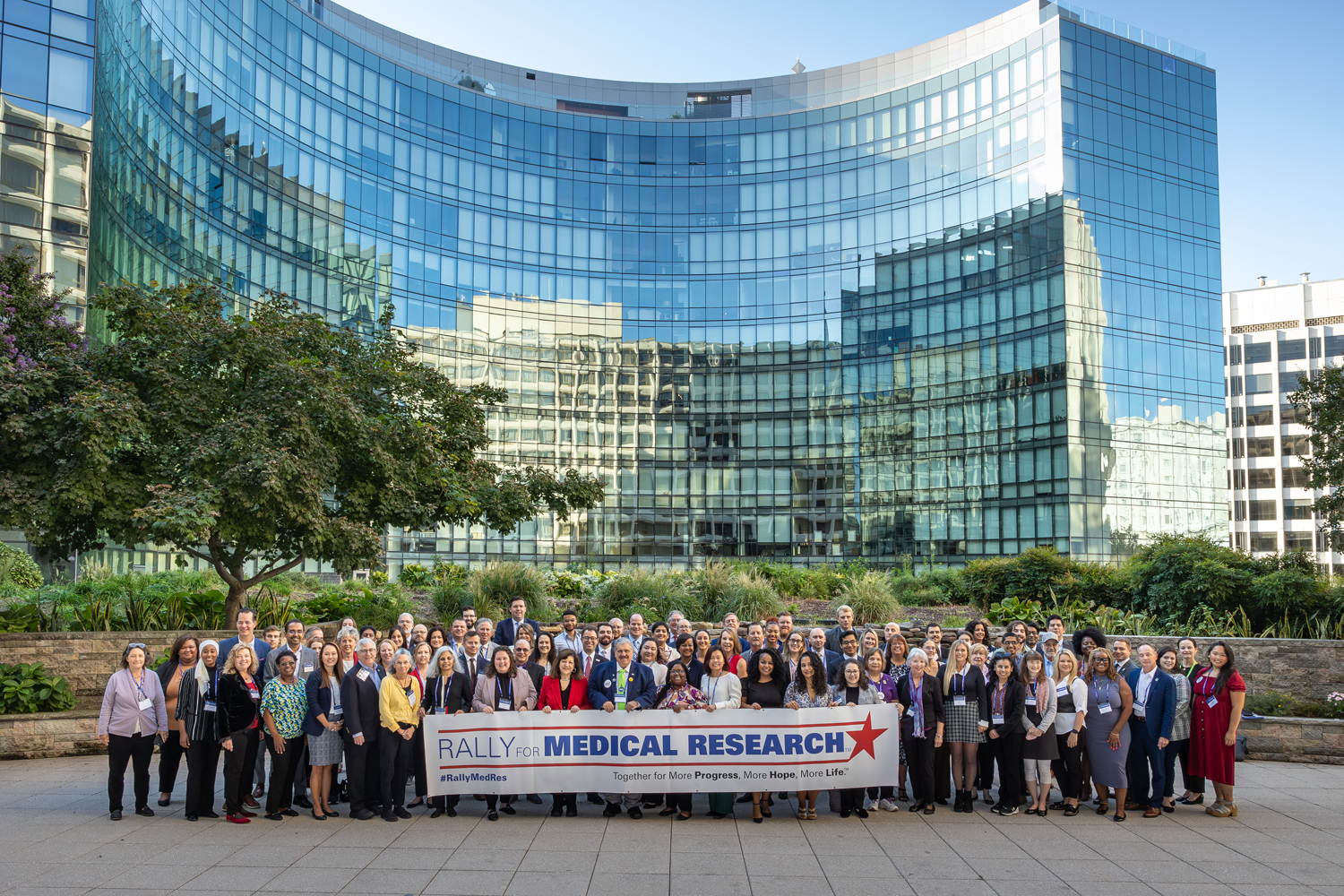
Benjamin Krinsky, PhD
AS THE APPROPRIATE LEVEL OF FEDERAL SPENDING continues to be a politically charged issue in Congress, it is critical to make the case for increased investments in the National Institutes of Health (NIH), the National Cancer Institute (NCI) and other government programs to continue progress against cancer and other diseases. In recent months, the American Association for Cancer Research (AACR) has taken several steps to support research funding.
In September 2023, the AACR released the 13th edition of the AACR Cancer Progress Report, which summarizes recent advances in the fight against cancer; highlights challenges that remain in cancer prevention, detection and treatment; and concludes with a call to action for policymakers to support the NIH and other federal health agencies. As described in the report, cancer death rates fell by 33% between 1991 and 2020, and the Food and Drug Administration approved 14 new anticancer therapeutics from Aug. 1, 2022, to July 31, 2023. Immunotherapies, which work by harnessing a patient’s immune system to fight cancer, represent a particularly exciting frontier for treating a growing list of cancer types. Such scientific advances would not be possible without robust investments in the NCI and the other institutes and centers that constitute the NIH, the world’s largest source of medical research support.
Despite this remarkable progress, Americans and people worldwide face manifold health challenges. The AACR Cancer Progress Report 2023 documents how the burden of cancer falls disproportionately on racial and ethnic minority populations and other medically underserved groups. For example, between 2018 and 2020, Black women died from uterine cancer at twice the rate of white women, despite similar incidence rates. Understanding the causes of health disparities and developing strategies to address them, including broadening clinical trial participation, require increased funding for federal health and research programs.
On the same day it released the AACR Cancer Progress Report 2023, the AACR announced the formation of the AACR Cancer Centers Alliance. This new initiative will foster collaboration among our nation’s cancer centers. Together, these institutions can leverage their resources to enhance the impact of federally funded cancer research programs to benefit diverse geographies and populations. The alliance will foster innovative directions in basic and translational research, broaden the reach of clinical research and clinical trials, and strengthen science education and training. The centers will be able to speak with a unified voice on issues related to cancer research, clinical trials, patient care, health policy and equity, and other vitally important issues pertaining to cancer care. To learn more, please visit the AACR website.
In recent years, Congress has shown remarkable support for investments in medical research: Over the past eight years, Congress increased the NIH budget by $17 billion to a total appropriation of approximately $47 billion. However, recent disagreements in Congress over the federal budget exposed cracks in the bipartisan consensus on the importance of the NIH for advancing science and health. One bill being debated proposes cutting the fiscal year 2024 NIH budget by approximately 8%. The health and research communities need to persuade Congress to maintain the momentum of medical progress and not back off its commitment to federally funded biomedical science and cancer research.
To this end, the AACR and its partners in the medical research advocacy community held the 11th Rally for Medical Research Capitol Hill Day in September. More than 240 patients, scientists, clinicians and other advocates from more than 100 organizations gathered in Washington, D.C., to urge lawmakers to increase funding for the NIH. Advocates also implored Congress to avoid government shutdowns and stopgap funding bills that stifle scientific progress and are particularly harmful to early-career researchers who, without funding, are often forced to pursue other professional paths.
The AACR will continue to advocate for robust, sustained and predictable increases in funding for the vital research programs supported by the NIH and for other federal policies that will aid in making progress against cancer. For more information, please visit the AACR website.
Cancer Today magazine is free to cancer patients, survivors and caregivers who live in the U.S. Subscribe here to receive four issues per year.





